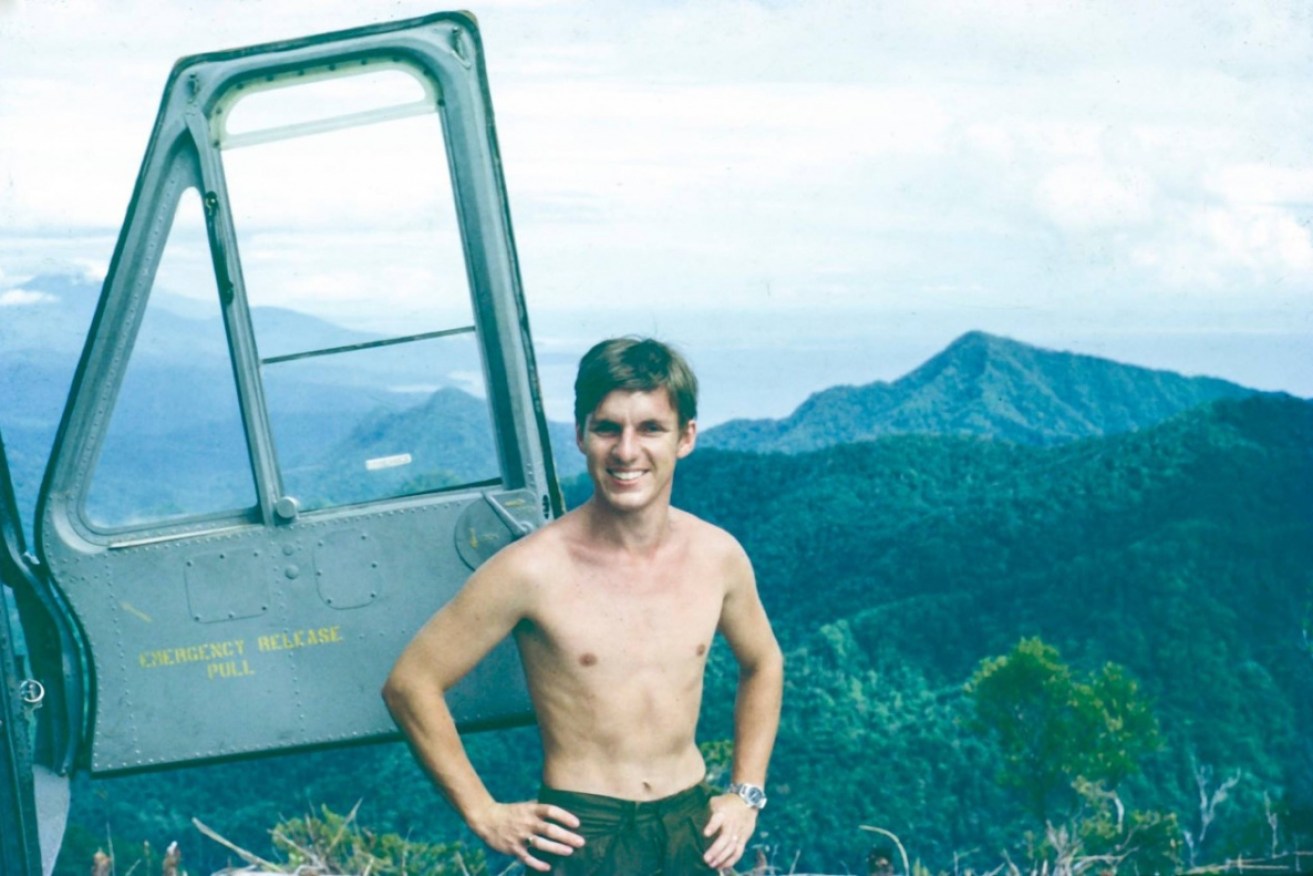‘Delay, deny and wait until we die’: Sick veterans blast Defence over toxic fuel


Roly Deighton has a rare blood cell cancer - his doctors believe he got it from the fuel.
Hundreds of former Australian defence personnel claim they’re suffering life-threatening cancers and strange illnesses as a result of exposure to toxic fuel, but are being ignored by the Department of Veterans Affairs.
Amid growing evidence that the jet fuels can cause long-term health complications, The New Daily has spoken to former service personnel across Australia who believe their health has been impacted by the fuel.
Former servicemen and women say they have been left out in the cold by the Department of Veterans Affairs (DVA), which they say ignores their claims.
The DVA told The New Daily it could not reveal how many fuel claims have been successfully processed during the timeframe provided.
Roly Deighton, 69, was a trained pilot who joined the RAAF in 1970.

Roly Deighton flew for Qantas afterwards. Photo: Supplied
“I flew … for five years,” he recalled, adding that one of his duties was being involved in the refuelling process.
Mr Deighton and his crew would strip down to boxer shorts and boots to refuel the engines, using old rags to wipe off any fuel spills.
On occasion, they used a large hose which, if not operated properly, would pour fuel over them.
“You would feel this wetness on your bum and you’re soaked in jet fuel, which means you sat in wet flying pants for the rest of the day,” he said.
“We never thought anything about it.”
They also used the fuel to wipe down their weapons and burn waste-filled latrines.
“It was everywhere,” he said.
Mr Deighton now suffers from a rare blood cell cancer – Waldenstrom’s macroglobulinaemia.
Both his immunologist, Professor Stephen Holdsworth, and his haematologist, Associate Professor Stephen Opat, agree the most likely cause is his contact with the fuel.
Despite this, DVA rejected his claim for medical compensation.
“There was no material presented to demonstrate a causal connection between the applicant’s service and his diagnosis of applicant’s Waldenstrom’s macroglobulinaemia to the Board’s reasonable satisfaction,” the DVA’s rejection letter stated.
After leaving the RAAF, Mr Deighton joined Qantas – but illness destroyed his career.

Mr Deighton said he would be drenched with fuel. Photo: Supplied
“I had to give up flying when I was 59. I could have still been flying now but I was getting sick so often.”
Sean Macnamara, 61, signed on in 1979. He served seven years and ‘got soaked daily in fuel’ for most of them.
He’s been sick since leaving the RAAF in 1995. He now suffers from an array of medical conditions including insipidus diabetes, polyarthritis, Paget’s disease and has had multiple melanomas.
“My teeth shatter and break easily due to toxic poisoning,” he told The New Daily.
“They literally have hundreds of shatter lines.”
He’s put in multiple claims to the DVA but has been rejected for every one of them.
“DVA just delays, denies and waits until we die,” Mr Macnamara said.
He runs a support group for veterans who believe they have are now suffering illness related to fuel exposure during their service.
Among them, they have suffered from depression, anxiety, skin conditions, gastrointestinal problems, and erectile dysfunction.

A serviceman sits on the pump’s frame to keep it steady whilst refueling the chopper.
To date, only a small number of defence personnel who worked on the F-111 deseal/reseal project, which saw maintenance personnel climb inside fuel tanks to repair leaks, have been successful in obtaining recognition that the toxic fuel can cause illnesses later in life, and granted compensation.
Mr Macnamara said the Defence Department’s denial of any link between jet fuel and health issues ‘is like asbestos’.
“In our group, there are over 700 people. Men and women who have both served. Some of the women have issues with giving birth to children, who are stillborn,” Mr Macnamara said.
“My conservative estimate is there are several thousand RAAF members alone that have died from something of this nature.”

Mr Macnamara takes 21 pills a day for his various medical conditions.
In 2014, the Department of Defence commissioned research into the effect of jet fuel. It came after some officers who were in contact with it suffered long-term consequences.
At the time, Defence’s Senior Physician in Occupational and Environmental Medicine, Doctor Ian Gardner, said the study found small but persistent cellular effects many years after exposure.
“The study found that while the kerosene component of jet fuel could adversely affect cells, the damage to cellular function is not expected to have immediate or adverse health effects,” Dr Gardner said.
But advocates point out the study focused on the fuel known as JP-8.
Many service personnel came into contact with JP-4, which has a higher concentration of chemicals such as benzene in it. JP-4 was used by the defence force between the 1960s and 1990s.
“JP-8 is 40 times less dangerous than JP-4,” said Mr Macnamara. “If every one of those JP-4 applications got filed, DVA would be insolvent.”
DVA has published two reports relating to fuel exposure in the military, both focusing on the reproductive outcomes of officers.
Former paratrooper Peter Ryan helps veterans with their compensation claims.
He says he and his team have worked on hundreds of claims relating to toxic fuel – with most of them rejected.
“We pick some of them up and say ‘no you have to fight for this. I’ve had one up in Darwin where the lady lost her husband,” he said.
“He was a mechanic, washing the parts in range fuels and wondering where the leukemia and blood cancers came from.”

An airman refuelling wearing his PPE – a rag to wipe himself down with.
He says he’s seen countless images of guys washing their guns or refuelling tanks without the proper PPE.
“I’ve got photographs refuelling jets in the Middle East. All they’ve got on is a pair of shorts, a T-shirt and Mickey Mouse ears and boots. That’s their protection,” Mr Ryan said.
He claims the government won’t do a full investigation into the effects of JP-4 because they know it would open the floodgates.
“The government knows. It’s like Agent Orange, we’ve been here before. Money talks and lives don’t matter.”
A spokesperson for the Department of Veterans Affairs said each claim for compensation was determined in “accordance with legislative instruments known as Statements of Principles (SOPs).”
“The SOPs are the responsibility of an independent expert body, the Repatriation Medical Authority (RMA), which is made up of eminent specialists in various fields,” the spokesperson said.
“The SOPs are based on the most recent sound medical-scientific evidence, and set out the causal factors which must as a minimum exist in order to link a claimed condition to service in the armed forces.”
Different types of fuel exposures are factors in a number of Statements of Principles for a range of medical conditions, the spokesperson said.








